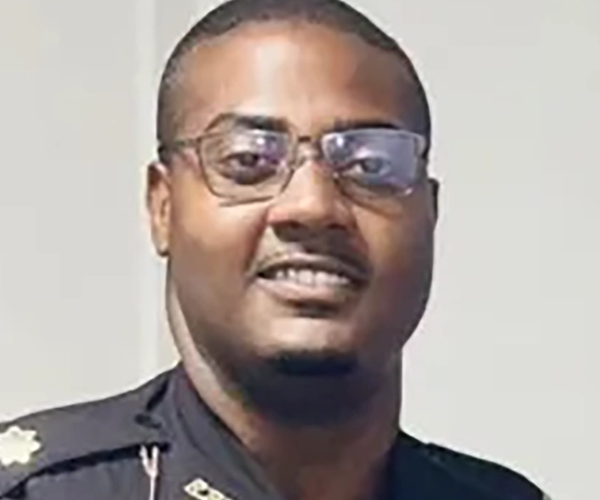Sidney R (Sid) Miles died on July 14, 2024, at Hospice of Golden Isles in Brunswick, Georgia, after a long battle with cancer. Sid was a favorite son of Reidsville, Georgia, and Tattnall County, and he enjoyed a long and distinguished career with the Georgia State Patrol and the Department of Public Safety where he rose to the rank of Colonel and Commissioner of the Department of Public Safety.
Sid’s story is unique in that he was born to Georgia State Trooper Sidney B. Miles and his wife, Emilee Coleman Miles. He grew up in the Georgia State Patrol family at Post 18 in Reidsville around significant role models such as Captain Johnny Robertson, Commander of F Troop of the Georgia State Patrol (GSP); Romie Waters, former GSP Trooper and longtime Sheriff of Tattnall County; Bill Strickland (Big Strick), who had a long career with GSP and became the Sheriff of Ware County; Perry Brown, Georgia Bureau of Investigation; Quinton Rush, GSP and Sheriff of Tattnall County; Brooks Moses, GBI; Bill Wingate, GSP; Brown Webb, GSP; Bobby McDaniel, GSP; and Sonny Beasley, a Trooper blinded in the line of duty who was one of the best radio operators in Georgia; and more. Obviously, he had a good head start in knowledge of GSP operations.
Sid graduated from Reidsville in 1969 and enrolled at South Georgia College in Doug-las, Ga. At the same time, he went to work for the Georgia State Patrol as a Radio Operator at Post 36 in Douglas. There he continued his education into Department of Public Safety Operations under the tutelage of GSP Sgt. Bill Clements; GSP Troopers Chuck Moore and Jimmy Collins; Pete West, GBI Agent; former GSP Sgt. L.D. Sapp; License Examiners Jack Tomlinson and Allen Spikes; and others. By the time Sid graduated with a two-year degree in Criminal Justice at South Georgia College, it could be said he had a Master’s Degree Level of experience in the Georgia State Patrol and Department of Public Safety operating procedures.
Certainly, he was exposed to a wealth of knowledge. This writer worked with the same group at Douglas as radio operator at Post 36 and was able to observe how things should be done and, in some cases, how things shouldn’t be done. Sid replaced me when I went to Athens. In conversations with him in later years, his time at Post 36 in Douglas provided a firm foundation for the success he experienced in the years to come.
In 1974, he graduated from the 44th Trooper School. His career trajectory included service in the Executive Protection Unit protecting Governors Jimmy Carter, George Bus-bee, Joe Frank Harris, and Zell Miller. In 1993, Governor Zell Miller appointed him to Commissioner of the Department of Public Safety. During that time, he was appointed Director of International Security for the 1996 Olympics in Atlanta. He retired in 1999 with 30 years of service to the Department of Public Safety.
There is no question that the “wealth of experience” mentioned above was a major factor in Sid’s remarkable service to the Department. In addition, his early association with individuals in law enforcement may have helped him develop a remarkable talent that I observed over the years.
From time to time, I would run into Sid somewhere, and in particular after we both retired, we would reminisce about the old days at Post 36 Douglas or Post 18 Reidsville and discuss those colorful individuals we both worked with during our time there. Sid had a unique ability to remember characteristics and strengths of each individual. It is not unusual to swap funny stories about friends or remember events where they were successful or stepped up to the plate and took a big swing and missed the ball. More importantly though, Sid often recalled small things about individuals that many people might overlook. He would mention something in that quiet voice that I sometimes had trouble hearing and always with a hint of a smile. He was seldom negative; if there was something about an individual that was less than exemplary, I could tell that he knew about it, but it went unsaid unless he was asked directly. If pressed, he would shrug and say something like, “Yes, he had a little problem there.”
That ability probably helped him assemble teams and install effective leadership. In other words, he had seen the good, bad and the ugly, and in the words of Big Bill Strickland, it was hard to “urinate on his foot and convince him it was raining.”
What Sid understood clearly is that the success he enjoyed as Colonel of the Georgia State Patrol and Director of International Security in the 96 Olympics was a direct result of the individuals he placed in leadership positions for those missions. He mentioned several of those individuals and was quick to point out their initiative and the good work they did.
In all branches of the military, the most successful commissioned officers begin as lieu-tenants and quickly learn to locate the most effective sergeants in their command who “know the ropes.” As officers, they often make day-to-day decisions based on the information pro-vided along with the judgement and experience of those sergeants.
Football coaches Erk Russell, Nick Saban, and Kirby Smart were and are stingy with the pronouns I and me, but they are quick to heap praise on their assistant coaches and players, and that is a sign of an effective leader. Whether Sid patterned that same behavior after leaders he served under or just understood the esprit de corps effects of that kind of leader-ship is immaterial. The fact that he operated that way and it was successful is the bottom line.
A combination of those two approaches outlined above seems to be the model Sid used. Simply stated, it’s knowing your people, letting them do their jobs, and giving them credit for good work. It certainly worked.
Well done, Colonel. Godspeed…





